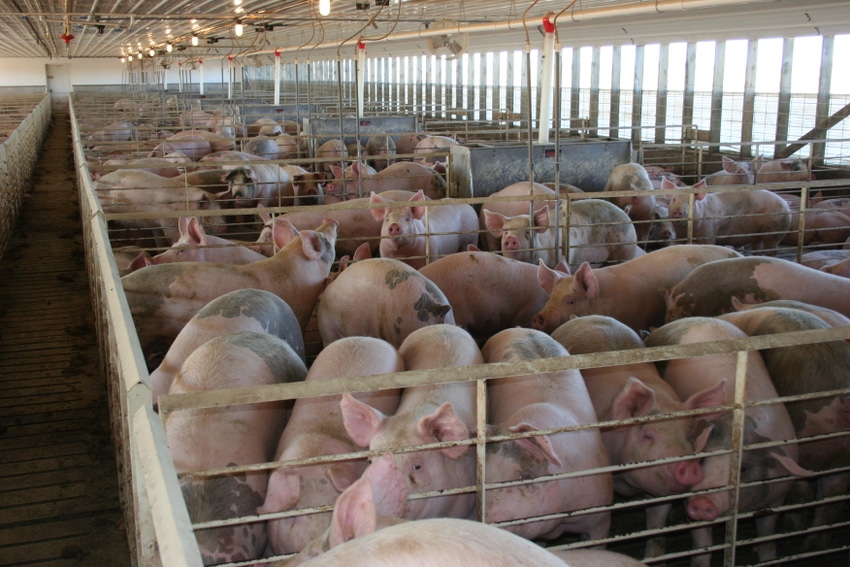February 14, 2018

A bipartisan group of senators has introduced the Fair Agricultural Reporting Method Act, S. 2421.
The bill would clarify that routine emissions from farm animals and their manure are not reportable under the Comprehensive Environmental Response, Compensation and Liability Act.
The CERCLA and the Emergency Planning and Community Right-to-Know Act, known as EPCRA, are laws on the books that require entities to notify authorities when they release large quantities of hazardous materials. In 2008, the EPA published a final rule exempting most livestock operations from the laws’ reporting requirements.
In April 2017, the U.S. Court of Appeals for the D.C. Circuit ruled EPA did not have the authority to create this exemption for agriculture, creating confusion and uncertainty for America’s ag producers.
The FARM Act would:
Maintain the exemption for certain federally registered pesticides from reporting requirements within CERCLA.
Exempt air emissions from animal waste on a farm from reporting requirements under CERCLA.
Provide agriculture producers with greater certainty by reinstating the status quo producers have been operating under since EPA’s 2008 final rule.
“Emissions from animals raised on farms and ranches were never intended to be swept into these reporting requirements,” said American Farm Bureau Federation President Zippy Duvall. “We urge Congress to act swiftly to pass this legislation before the reporting requirement overwhelms our first responders and burdens farmers and ranchers with needless reporting obligations and the risk of activist lawsuits.”
EPA has provided reporting guidance to farmers and ranchers, but there is no scientific consensus on how to measure air emissions on individual farms, requiring many farmers to spend resources on consultants. In the absence of legislation, these requirements not only require reporting by larger farms, but many medium-sized farms and even pastured cow-calf farms as well as ranchers grazing on federal lands and horse farms.
What the bill’s sponsors are saying:
“Agriculture is driving Iowa’s expanding economy, and by exempting agricultural operations from these requirements, the FARM Act provides the relief Iowa’s farmers and ranchers deserve while promoting continued growth across the state,” said Sen. Jodi Ernst, R-Iowa, a member of the Senate Agriculture Committee and the Senate Environment and Public Works Committee.
“I am pleased to join this bipartisan group of senators as we work together toward a solution that provides both needed clarity for our hardworking farmers, as well as the necessary data to protect our environment and keep the public informed,” said Sen. Tom Carper, top Democrat on the Senate Environment and Public Works Committee.
“These reporting requirements were designed to apply to industrial pollution and toxic chemicals, not animal waste on a farm or a ranch,” said Sen. Deb Fischer, R-Nebraska, a member of the Senate Agriculture Committee and the Senate Environment and Public Works Committee. “Our legislation makes it clear that agriculture is exempt from these requirements and ensures producers in this country can continue to operate as they have been since 2008.”
“Requiring farmers to spend their time and money on reports that will go unused by EPA would be burdensome and needless,” said Sen. Joe Donnelly, D-Indiana, a member of the Senate Agriculture Committee. “I’m proud to work with my colleagues on this bipartisan legislation to restore the commonsense approach to regulating our livestock farmers.”
“The FARM Act is a commonsense bill to protect our farmers and ranchers from burdensome and unnecessary regulations,” said Sen. John Barrasso, R-Wyoming, chairman of the Senate Environment and Public Works Committee. “These reporting requirements were never intended to be applied to agricultural operations.”
“I urge my colleagues in the Senate to act swiftly on this legislation and to get these producers the help they need,” said Sen. Pat Roberts, R-Kansas, Agriculture Committee chairman.
“These programs were enacted to clean up land that has been identified by the EPA as hazardous or contaminated and make certain America’s communities can safely manage hazardous substances. They were not intended to be imposed on family farming operations, who are working to use the best science in order to produce enough food and fuel for a growing global population,” said Sen. Mike Rounds, R-S.D., a member of the Senate Environment and Public Works Committee. “Our bill codifies this intent into law to prevent activist interest groups from attempting to redefine congressional intent related to CERCLA in the future.”
“I believe that strong environmental protections must be balanced with an approach that makes sense for farmers who live and work on the land,” said Sen. Chris Coons, D-Delaware, co-chair of the Senate Chicken Caucus. “I have heard from many farmers in my state about this issue, and I am pleased this will provide them relief.”
Source: AFBF, Office of Sen. Jodi Ernst
You May Also Like




